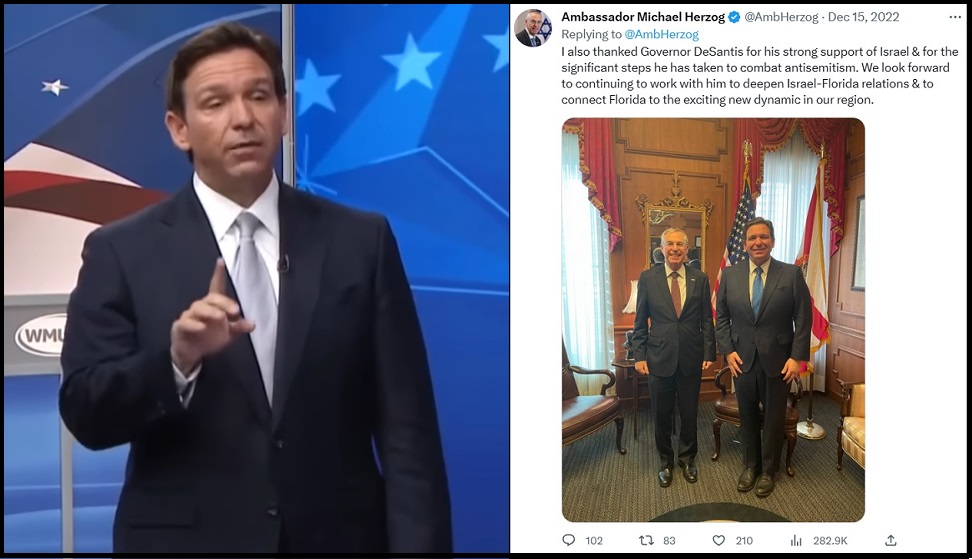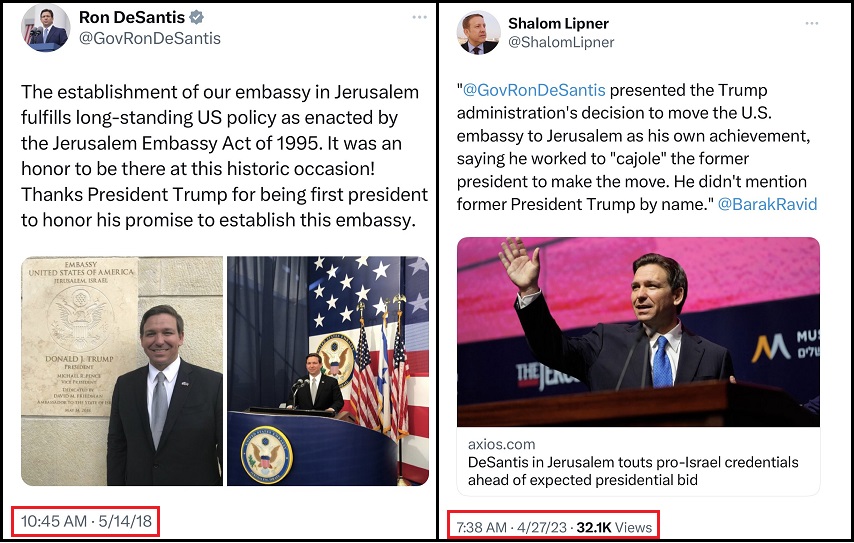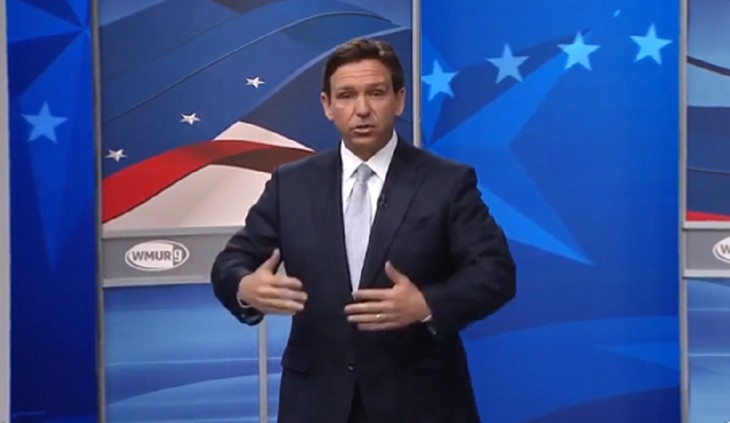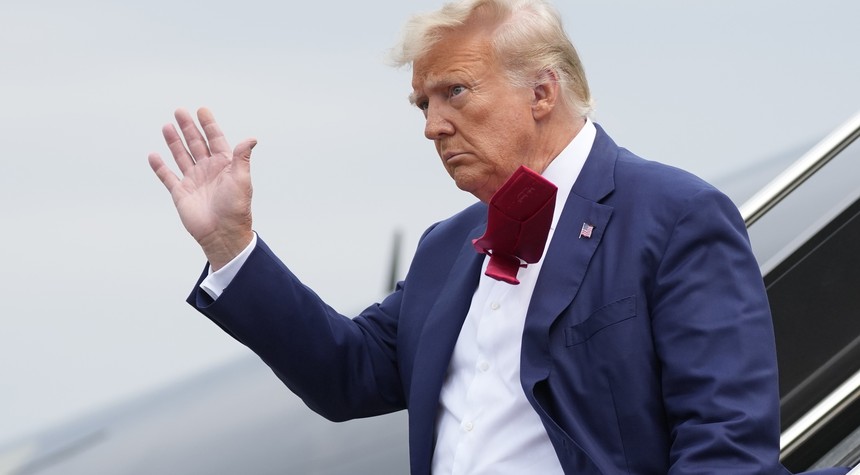Prior to Major League Baseball’s (MLB) August 1 trade line, we examined whether the Democrat and Republican parties are considering the trade route to improve their prospects heading into the main event of the 2024 presidential election. First, we deduced how the Democrats were going to make a late primary season trade of 2024 nominees, swapping out current President Joe Biden for California Governor Gavin Newsom (D).
Last week, we focused on the prospects of Republicans trading former President Donald Trump for a new nominee. Notably, we discerned that not only is Mr. Trump still receiving the ardent support of his supporters, he is also receiving not so covert support from unlikely quarters: the Democrats and their media cohorts. Due to Mr. Trump’s hold on his base, for the GOP the question lingered whether it could designate him assignment, and claim one of his challengers off the waiver wire to be the party’s 2024 nominee?
Though the MLB trade deadline has passed, ball clubs may still add players off the waiver wire. The process is thus: following the trade deadline, a team wanting to send a player to the minors or trade him puts him on “waivers.” (In essence, the team is “waiving” its interest in the player.) Once on waivers, another team who may want that player can pick him up for little or no consideration. It is not an exact comparison, but it is an apt one, given how the GOP currently has little interest in embracing anyone in the primary field to replace the frontrunning Mr. Trump.
But should the Democrats move too soon to trade away President Biden and replace him with Governor Newsom – or should the GOP wake up and read the writing on the wall even sooner – the Republican primary voters could decide trading out Mr. Trump makes eminent sense. This could happen if, for no other reason, that in politics as in war, history demonstrates the losing side is the one still fighting the last war.
So, who might the GOP claim off the waiver wire to replace Mr. Trump? Ah, one forgets how Republican-populism is a movement not a person. In consequence, let us explore what strengths a prospective 2024 nominee will need to merit being claimed off the GOP waiver wire and named the movement’s standard bearer.
It is best to do so by deductive reasoning: what is the key reason these candidates are presently flailing in the primary field? Bluntly, they have yet to recognize how Mr. Trump has changed the GOP; and, more importantly, how he has not.
First, it is an interesting feat that Mr. Trump has changed the GOP, because he is not a natural nor a long self-identified Republican. Indeed, he started political life more as a New York business tycoon, who well understood the transactional nature of politics and its reliance upon friendly relations with Democrats. Yet he also shared the political instincts of another populist business tycoon: H. Ross Perot. Mr. Trump used his understanding of transactional politics and Reform Party instincts to latch onto the Republican-populist movement, win the 2016 GOP primary, and capture the presidency with a minority of the popular vote.
Doing so, Mr. Trump brought new or returned voters to the GOP fold. Perhaps most importantly, for these voters and the traditional GOP voters, Mr. Trump’s leftist enemies dropped their masks and revealed themselves as power abusing autocrats. From Russia-gate on, the Democrats exhibited their lack of boundaries, weaponizing the police powers of the state to persecute not only Mr. Trump, but anyone who dissented from their leftist agenda, such as parents freely assembling to freely speak and petition government for the redress of their grievances at school board meetings. Thus, while Mr. Trump had unwitting help from the Democrats in altering the composition of the Republican Party, it is the Left’s corrupt abuses of power that facilitated the former president’s other change in the GOP: Republicans now fully realize the craven, dictatorial nature of their opponents; and will (non-violently) fight to defend and redeem their free republic from them.
Indeed, the desire to nominate a “fighter” to do battle with the Uniparty and “drain the swamp” seemingly makes Mr. Trump immune to the argument his renomination will prove a monumental disaster for the GOP. Even if one of his supporters may agree with this grim prognostication, they would still rather lose with him than win with a RINO. And thanks to Mr. Trump’s persuasive powers, presently all the other prospective 2024 GOP nominees cannot refute his claim “I will fight! The others won’t or can’t!” One can say this because, if they could fight, in the polls they would be ahead of Mr. Trump not behind him – collectively behind him.
Yet, this standard is not insurmountable, for it is not real. Throughout his presidency, there were times when Mr. Trump did not fight well or at all; and, often, his political inexperience led to regrettable results for the republic, such as the COVID shutdowns and enabling Fauci, et. al. No person is perfect, though political consultants are handsomely paid to have you believe otherwise. Therefore, elementary campaigning requires Mr. Trump’s primary challengers to favorably compare and contrast their handling of similar issues with his ineptitude. Those who can have done so, but without success. Why? Because they do not like Mr. Trump. And he is not shy about baiting these challengers to make undisciplined missteps in the heat of the moment, any more than he is shy about anything. As he has done with his Democrat detractors, this trait remains Mr. Trump’s ace in the hole.
Taking offense where offense is intended is normal human behavior. Sure, candidates shake hands with each other and smile for the cameras, but people heatedly competing for anything are rarely sincere in their mutual esteem. For the GOP primary voter, who does not loathe Mr. Trump, his primary opponents’ dislike of him is palpable; and it is viewed as piling on and aiding Mr. Trump’s Democrat and Never Trump opponents. More importantly, these GOP candidates’ dislike of him breeds Republican primary voters’ suspicions: are these candidates swamp-fed RINOs doing the Uniparty’s bidding?
How, then, can a Republican primary opponent successfully contrast their proven record against Mr. Trump’s without appearing disloyal not only to him, but to the GOP grassroots who admire him? Let the lessons of history, again, be our guide as we prepare for the next war in 2024.
There was another instance of when a general earned the gratitude of his troops by teaching them how to fight. When he ran for president, it was expected his admiring former troops’ votes would put him over the top. It was not to be for former General George B. McClellan in 1864.
As Michigan historian Bruce Catton wrote in the final volume of his Army of the Potomac trilogy, A Stillness at Appomattox:
McClellan had always been the symbol… Everything that these men had, one supposes, they would have given to be again the army McClellan had commanded and to have him again for a leader, and yet they did not try to vote the past back into existence because they were fond young men no longer. They had come of age and they gave history something new to look at, not seen before in all the record of wars and men of war – the sight, that is, of veteran soldiers who had long outlived enthusiasm and heroics walking quietly up to the ballot boxes and voting for more war to be fought by themselves instead of voting for an end to it and no more fighting.
What happened to secure the soldiers’ votes for Lincoln, a president for whom they held no abiding affection (at the time)?
At bottom, what counted most may have been nothing more than a simple refusal to admit that they could be beaten. An officer wrote that “they were unwilling that their long fight should be set down as a failure, even though thus far it seemed so,” and that probably says it. The men were not quitters, and when it came time to vote they said so according to their understanding of the case.”
Yet, what was that case? What led men who had been fighting for years to continue marching through the charnel house of Civil War? A hardened soldier in the Army of the Potomac could understandably, if mistakenly, have viewed the Copperhead Democrat McClellan’s “armistice” as a draw, not a defeat. They did not, choosing instead to look to the future. Mr. Catton cited a contemporaneous summation by an Episcopal bishop from Atlanta: “Their idol is less the Union of the past than the sublime Union of the future, destined soon to overshadow all other nations.”
In summation, then, for a GOP primary challenger to Mr. Trump to persuade the party to replace the former president as their nominee, they first need to show the discipline necessary to admit that the GOP owes him a debt of gratitude for showing them how to fight. This will not be easy – and Mr. Trump’s insults will ensure it is as hard as possible. But emotional disciple is virtue in a national leader as, ironically, Mr. Trump’s frequent, injurious lack of impulse control demonstrates. In expressing their gratitude to Mr. Trump for showing the GOP how to fight, the primary challenger is doing something far more important: telling GOP primary voters they are respected; and they needed to win the battle for our free republic and protect America’s standing in the world.
Only after this is achieved will the GOP primary voters be willing to listen to the political reality that Mr. Trump’s renomination is emotionally satisfying and politically suicidal. Much of what the GOP primary voters cherish and defend will be lost, crushed by an unchecked Leftist administrative state – not merely for a term or two, but for generations.
Yet, what will that cause loss? It cannot merely be whatever one gleans within the Mr. Trump’s nebulous, cribbed slogan of “Make America Great Again (Again).” This has always been a rather regressive and inaccurate battle cry. First, America is always great, because of her people. It is our servant government that is often abysmal.
Second, it is a call to go backwards to go forwards, and this is an unsound strategy. This is, though, perhaps a better slogan for Mr. Trump’s 2024 campaign. Well, that or “Back to the Future.”) An army or party is created to go forward, be it over the battlefield or into the voting booth. “Strategic retreats” just delay defeat.
Finally, it is a misunderstanding of conservatism and its incarnation as Republican-populism. This is not surprising, as Mr. Trump is not versed in conservatism, which has never been about the negation of the future. And this is what Mr. Trump has not changed about the Republican Party, even if he wanted to do so.
Republicans remain devoted to their founding mission of securing and expanding liberty and equality; conserving the permanent things of faith, family, community, and country; and advancing constructive change based upon a grounded understanding of immutable principles and imperfectible humanity.
The current Republican-populist movement looks to the future, and requires an aspirational vision that, in fact, delves deeper than the cribbed slogan of “Make America Great Again (Again).” Regrettably, because Mr. Trump’s challengers fail to successfully articulate such a vision only intensifies Republican voters’ belief that these pols are just red-hatted RINOs. This is understandable, since any GOP nominee who seeks to carry the banner held by individuals such as Abraham Lincoln, Theodore Roosevelt, Dwight Eisenhower, and Ronald Reagan should not only know what this aspirational vision remains, but feel it to the very depths of their soul: namely, the American republic’s revolutionary experiment in self-government exists to inspire ourselves and the world with what a free people achieve.
To wit, a free sample for the (self-)interested: “For your stalwart efforts, Mr. Trump, we owe our admiration, but not our nomination. You have shown us we must fight. But cannot win that fight with you as our nominee. Republican-populism transcends an individual. It is a transformational movement to promote and protect liberty and equality; defend our free republic; and inspire the world with what a free people achieve.”
Should a GOP primary challenger to Mr. Trump can express their admiration for what he has done for the party and the country; demonstrate, however, that Mr. Trump’s renomination will result in electoral disaster; prove their own stalwart record and stances make them worthy of being the party’s standard bearer; and provide all voters a forward-looking aspirational vision for America, the Republican Party will claim this formidable candidate off the waiver wire.
If not, welcome to the bush leagues.













